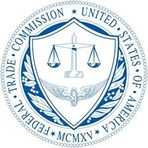The Noncompete Conundrum: A Legal Tug-of-War
August 22, 2024, 11:37 am

Location: United States, District of Columbia, Washington
Employees: 1001-5000
Founded date: 1914

Location: United States, District of Columbia, Washington
Employees: 501-1000
Founded date: 1912

Location: United States, Wisconsin, Milwaukee
Employees: 1001-5000
Founded date: 1991
Total raised: $300M
In a striking legal decision, a Texas judge has thrown a wrench into the Biden administration's efforts to ban noncompete agreements. This ruling, delivered by U.S. District Judge Ada E. Brown, has sent ripples through the business world, reigniting debates over worker rights, economic freedom, and the power of regulatory agencies.
Noncompete agreements are like chains that bind employees to their current jobs. They prevent workers from jumping ship to competitors or starting their own ventures. The Federal Trade Commission (FTC) aimed to cut these chains, arguing that such agreements stifle innovation and suppress wages. The FTC estimated that about 30 million American workers are shackled by these contracts. The agency believed that banning noncompetes could boost worker earnings by an average of $524 annually.
However, Judge Brown's ruling has halted this momentum. She declared that the FTC overstepped its authority. The judge argued that the agency lacked the statutory power to impose such a sweeping ban. In her view, the FTC's approach was arbitrary and capricious, akin to using a sledgehammer to crack a nut.
The ruling is a significant setback for the FTC, which had hoped to enforce the ban starting September 4, 2024. The agency's spokesperson expressed disappointment, emphasizing that the fight against noncompetes is far from over. The FTC is considering an appeal, signaling that this legal battle is just beginning.
The judge's decision contrasts sharply with a recent ruling in Pennsylvania, where a different judge upheld the FTC's authority to regulate noncompete agreements. This divergence highlights the patchwork nature of legal interpretations across the country. It raises questions about the consistency of judicial decisions and the future of noncompete agreements.
Supporters of the ban argue that noncompetes restrict economic mobility. They claim these agreements keep wages low and hinder the creation of new businesses. The FTC's Chair, Lina Khan, has been vocal about the detrimental effects of noncompetes on the economy. She believes that eliminating these agreements could unleash a wave of innovation and entrepreneurship.
On the other side of the coin, business groups have rallied against the ban. They argue that noncompete agreements are essential for protecting trade secrets and investments in employee training. Companies in industries like real estate and technology often rely on these contracts to safeguard their competitive edge. Critics of the FTC's blanket ban assert that it fails to differentiate between harmful and beneficial noncompete agreements. They argue that a more nuanced approach is necessary.
The legal landscape surrounding noncompete agreements is complex. States have historically regulated these contracts, with some states, like California, outright banning them. The FTC's foray into this territory marks a significant shift in federal oversight. However, Judge Brown's ruling suggests that the agency may need to tread carefully.
The implications of this ruling extend beyond the courtroom. For workers, the outcome could determine their ability to seek better job opportunities without fear of legal repercussions. For businesses, it could reshape how they protect their interests and manage talent. The tension between employee rights and corporate interests is palpable.
As the FTC considers its next steps, the stakes remain high. The agency's mission to promote fair competition and protect workers is at the forefront of this debate. Yet, the question looms: how far can it go without explicit congressional authority?
The noncompete saga is emblematic of broader themes in American labor relations. It reflects the ongoing struggle between workers seeking freedom and companies aiming to protect their investments. The outcome of this legal battle could set a precedent for how noncompete agreements are treated in the future.
In the coming months, we may witness a series of legal maneuvers as the FTC navigates this complex landscape. The agency's commitment to addressing noncompetes through case-by-case enforcement actions may provide a path forward. However, the challenge lies in balancing the interests of workers and businesses.
The legal tug-of-war over noncompete agreements is far from over. As the FTC weighs its options, the implications of this ruling will reverberate throughout the economy. Workers and businesses alike will be watching closely, waiting to see how this pivotal moment unfolds.
In the end, the fate of noncompete agreements may hinge on the delicate dance between regulation and economic freedom. The legal system will play a crucial role in shaping the future of work in America. As this saga continues, one thing is clear: the battle for worker rights and corporate interests is just beginning.
Noncompete agreements are like chains that bind employees to their current jobs. They prevent workers from jumping ship to competitors or starting their own ventures. The Federal Trade Commission (FTC) aimed to cut these chains, arguing that such agreements stifle innovation and suppress wages. The FTC estimated that about 30 million American workers are shackled by these contracts. The agency believed that banning noncompetes could boost worker earnings by an average of $524 annually.
However, Judge Brown's ruling has halted this momentum. She declared that the FTC overstepped its authority. The judge argued that the agency lacked the statutory power to impose such a sweeping ban. In her view, the FTC's approach was arbitrary and capricious, akin to using a sledgehammer to crack a nut.
The ruling is a significant setback for the FTC, which had hoped to enforce the ban starting September 4, 2024. The agency's spokesperson expressed disappointment, emphasizing that the fight against noncompetes is far from over. The FTC is considering an appeal, signaling that this legal battle is just beginning.
The judge's decision contrasts sharply with a recent ruling in Pennsylvania, where a different judge upheld the FTC's authority to regulate noncompete agreements. This divergence highlights the patchwork nature of legal interpretations across the country. It raises questions about the consistency of judicial decisions and the future of noncompete agreements.
Supporters of the ban argue that noncompetes restrict economic mobility. They claim these agreements keep wages low and hinder the creation of new businesses. The FTC's Chair, Lina Khan, has been vocal about the detrimental effects of noncompetes on the economy. She believes that eliminating these agreements could unleash a wave of innovation and entrepreneurship.
On the other side of the coin, business groups have rallied against the ban. They argue that noncompete agreements are essential for protecting trade secrets and investments in employee training. Companies in industries like real estate and technology often rely on these contracts to safeguard their competitive edge. Critics of the FTC's blanket ban assert that it fails to differentiate between harmful and beneficial noncompete agreements. They argue that a more nuanced approach is necessary.
The legal landscape surrounding noncompete agreements is complex. States have historically regulated these contracts, with some states, like California, outright banning them. The FTC's foray into this territory marks a significant shift in federal oversight. However, Judge Brown's ruling suggests that the agency may need to tread carefully.
The implications of this ruling extend beyond the courtroom. For workers, the outcome could determine their ability to seek better job opportunities without fear of legal repercussions. For businesses, it could reshape how they protect their interests and manage talent. The tension between employee rights and corporate interests is palpable.
As the FTC considers its next steps, the stakes remain high. The agency's mission to promote fair competition and protect workers is at the forefront of this debate. Yet, the question looms: how far can it go without explicit congressional authority?
The noncompete saga is emblematic of broader themes in American labor relations. It reflects the ongoing struggle between workers seeking freedom and companies aiming to protect their investments. The outcome of this legal battle could set a precedent for how noncompete agreements are treated in the future.
In the coming months, we may witness a series of legal maneuvers as the FTC navigates this complex landscape. The agency's commitment to addressing noncompetes through case-by-case enforcement actions may provide a path forward. However, the challenge lies in balancing the interests of workers and businesses.
The legal tug-of-war over noncompete agreements is far from over. As the FTC weighs its options, the implications of this ruling will reverberate throughout the economy. Workers and businesses alike will be watching closely, waiting to see how this pivotal moment unfolds.
In the end, the fate of noncompete agreements may hinge on the delicate dance between regulation and economic freedom. The legal system will play a crucial role in shaping the future of work in America. As this saga continues, one thing is clear: the battle for worker rights and corporate interests is just beginning.